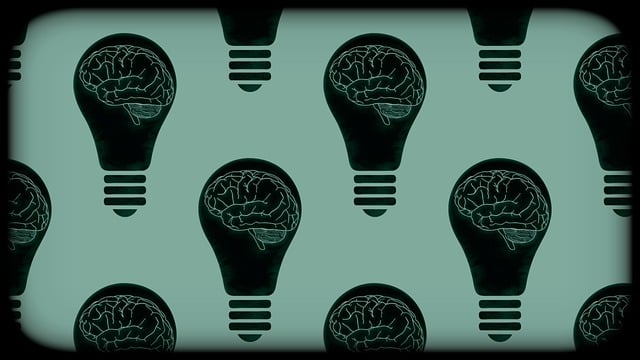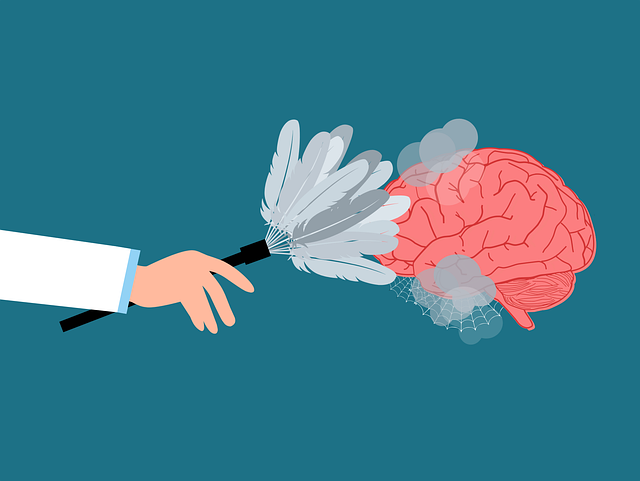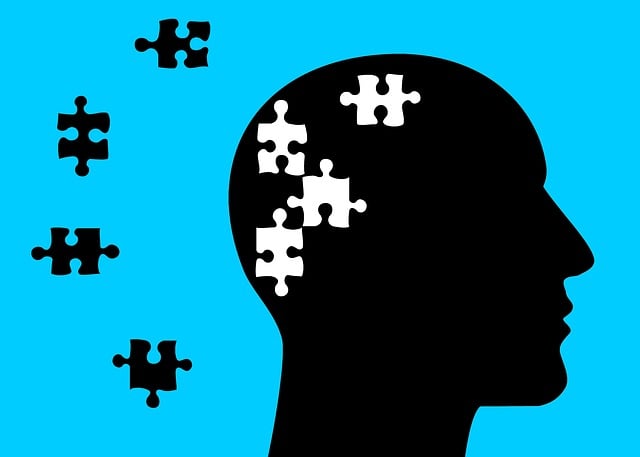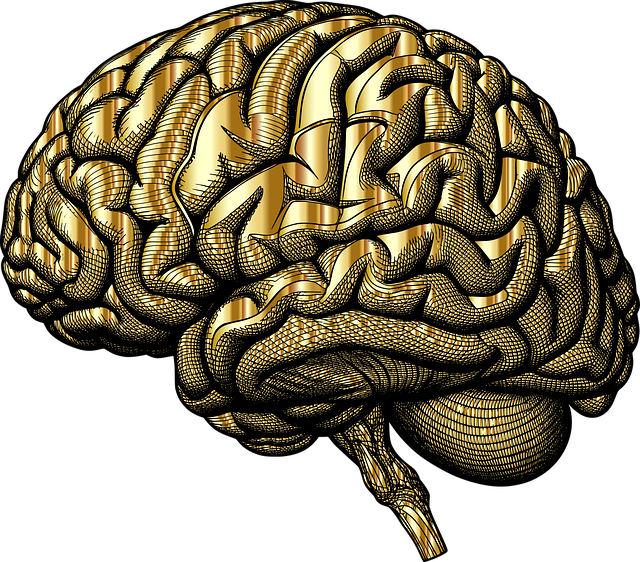Englewood Divorce Therapy offers a comprehensive mental health education program that dispels stigma, encourages help-seeking behaviors, and promotes well-being. Through interactive workshops, case studies, group discussions, and practical strategies, their holistic approach builds empathy, teaches self-care, and fosters community support. Incorporating role-playing, mindfulness meditation, and evidence-based practices equips individuals with tools to manage emotions, reduce stress, and prevent depression. The program's success is supported by data-driven design, regular assessment, and continuous feedback, ensuring effective outcomes in personal growth and mental health recovery.
Mental health education is a vital component of overall well-being, and effectively designing programs can significantly impact society. This article explores the intricate process of crafting a comprehensive mental health education program, from debunking stigma to implementing successful strategies. We delve into the unique approach taken by Englewood Divorce Therapy, showcasing how their program structure, engaging curriculum, and evaluation methods have led to remarkable outcomes. Discover actionable insights for creating impactful mental health education initiatives.
- Understanding Mental Health: Debunking Stigma and Promoting Awareness
- Program Structure: Creating a Comprehensive Curriculum for Effective Education
- Engagement Strategies: Making Education Interactive and Accessible
- Implementing and Evaluating Success: Measuring Impact and Continuous Improvement at Englewood Divorce Therapy
Understanding Mental Health: Debunking Stigma and Promoting Awareness

Mental health is a fundamental aspect of overall well-being, encompassing our emotional, psychological, and social state. However, it’s often shrouded in mystery and stigma, which can hinder individuals from seeking help. This is where comprehensive education programs step in as powerful tools to dispel myths and foster understanding. By engaging in open conversations about mental health, we can create a supportive environment where people feel comfortable discussing their experiences and seeking appropriate care.
Englewood Divorce Therapy recognizes the significance of this initiative, aiming to integrate stigma-busting strategies into its program design. Through interactive workshops and informative sessions, participants gain insights into various mental health conditions, promoting empathy and breaking down barriers. Educating individuals about mood management techniques, stress reduction methods, and depression prevention strategies empowers them to take charge of their well-being. Such programs can ultimately contribute to a more compassionate and informed community, where mental health is prioritized and supported.
Program Structure: Creating a Comprehensive Curriculum for Effective Education

A well-structured mental health education program is a powerful tool to equip individuals with the knowledge and skills needed for their overall well-being. At Englewood Divorce Therapy, we understand that creating a comprehensive curriculum involves more than just teaching facts; it’s about fostering an environment where participants feel empowered to take charge of their mental health. Our approach emphasizes a holistic view, incorporating various components like theoretical foundations, interactive workshops, and real-life application scenarios. By combining evidence-based practices with practical strategies, we ensure our program addresses the complex nature of mental health concerns.
The curriculum design should focus on building empathy, offering valuable self-care routine development techniques, and promoting community outreach program implementation. Through engaging activities, individuals can learn to recognize their emotions, develop coping mechanisms, and enhance their problem-solving abilities. Moreover, integrating case studies and group discussions allows for a deeper understanding of different mental health issues, fostering an inclusive and supportive learning atmosphere. This structured yet flexible approach ensures that the program caters to diverse needs while encouraging personal growth and resilience.
Engagement Strategies: Making Education Interactive and Accessible

Mental health education programs must be designed to foster engagement and interaction among participants to ensure effective learning. One powerful strategy is to incorporate interactive elements that replicate real-world scenarios, allowing individuals to apply theoretical concepts. For instance, role-playing exercises can simulate challenging situations like managing a client’s crisis or facilitating group discussions on sensitive topics, mirroring the dynamic nature of therapeutic settings. This approach not only enhances knowledge but also builds practical skills, making education more relatable and accessible.
Additionally, integrating practices such as mindfulness meditation and emotional healing techniques into the curriculum can create a safe and supportive learning environment. These strategies promote self-awareness and stress management, enabling participants to connect with their emotions and develop healthy coping mechanisms. By combining interactive activities with evidence-based practices like crisis intervention guidance, programs can effectively equip individuals with the tools to navigate mental health challenges, mirroring the comprehensive approach offered by Englewood Divorce Therapy.
Implementing and Evaluating Success: Measuring Impact and Continuous Improvement at Englewood Divorce Therapy

Implementing and evaluating success at Englewood Divorce Therapy involves a comprehensive approach to mental health education program design. The organization has pioneered innovative strategies, such as integrating Emotional Well-being Promotion Techniques and Stress Management Workshops, which have shown remarkable outcomes in enhancing client resilience and coping mechanisms. Through these programs, participants gain valuable skills in mindfulness meditation, enabling them to navigate life’s challenges with greater equanimity.
Regular assessment and feedback mechanisms play a pivotal role in the continuous improvement of these initiatives. Englewood Divorce Therapy employs data-driven methods to measure the impact of each program component, identifying areas for refinement and tailoring interventions to meet evolving client needs. This commitment to ongoing evaluation ensures that the programs remain effective and relevant, ultimately fostering a supportive environment conducive to mental health recovery and personal growth.
Mental health education programs, as exemplified by Englewood Divorce Therapy’s approach, can significantly impact society by fostering understanding and reducing stigma. By combining structured curriculums, interactive engagement strategies, and continuous evaluation, these programs empower individuals to recognize and support their mental well-being. This comprehensive design ensures that education is not only accessible but also effective in promoting a healthier, more supportive community.














